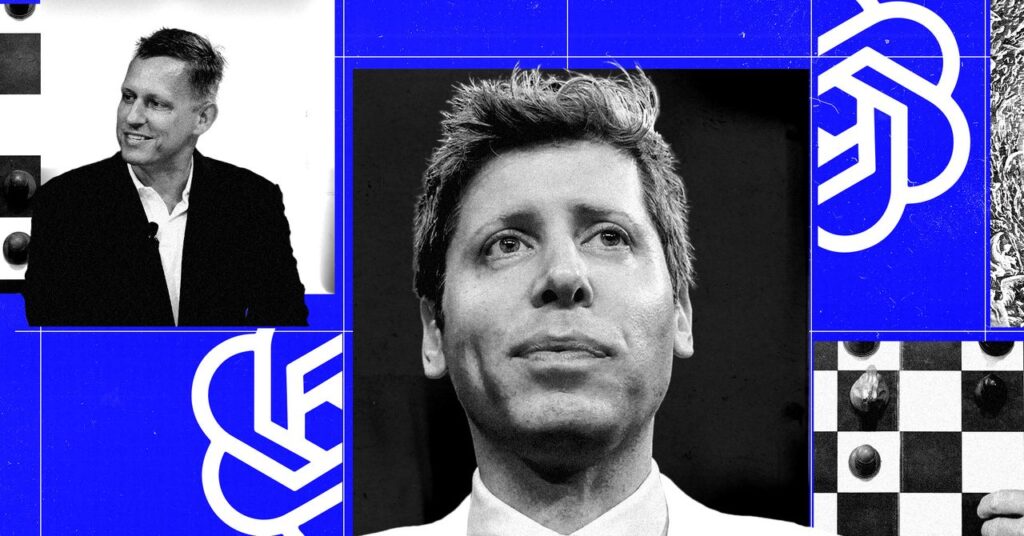Two members of the Extropian community, internet entrepreneurs Brian and Sabine Atkins—who met on an Extropian mailing list in 1998 and were married soon after—were so taken by this message that in 2000 they bankrolled a think tank for Yudkowsky, the Singularity Institute for Artificial Intelligence. At 21, Yudkowsky moved to Atlanta and began drawing a nonprofit salary of around $20,000 a year to preach his message of benevolent superintelligence. “I thought very smart things would automatically be good,” he said. Within eight months, however, he began to realize that he was wrong—way wrong. AI, he decided, could be a catastrophe.
“I was taking someone else’s money, and I’m a person who feels a pretty deep sense of obligation towards those who help me,” Yudkowsky explained. “At some point, instead of thinking, ‘If superintelligences don’t automatically determine what is the right thing and do that thing that means there is no real right or wrong, in which case, who cares?’ I was like, ‘Well, but Brian Atkins would probably prefer not to be killed by a superintelligence.’ ” He thought Atkins might like to have a “fallback plan,” but when he sat down and tried to work one out, he realized with horror that it was impossible. “That caused me to actually engage with the underlying issues, and then I realized that I had been completely mistaken about everything.”
The Atkinses were understanding, and the institute’s mission pivoted from making artificial intelligence to making friendly artificial intelligence. “The part where we needed to solve the friendly AI problem did put an obstacle in the path of charging right out to hire AI researchers, but also we just surely didn’t have the funding to do that,” Yudkowsky said. Instead, he devised a new intellectual framework he dubbed “rationalism.” (While on its face, rationalism is the belief that humankind has the power to use reason to come to correct answers, over time it came to describe a movement that, in the words of writer Ozy Brennan, includes “reductionism, materialism, moral non-realism, utilitarianism, anti-deathism and transhumanism.” Scott Alexander, Yudkowsky’s intellectual heir, jokes that the movement’s true distinguishing trait is the belief that “Eliezer Yudkowsky is the rightful calif.”)
In a 2004 paper, “Coherent Extrapolated Volition,” Yudkowsky argued that friendly AI should be developed based not just on what we think we want AI to do now, but what would actually be in our best interests. “The engineering goal is to ask what humankind ‘wants,’ or rather what we would decide if we knew more, thought faster, were more the people we wished we were, had grown up farther together, etc.,” he wrote. In the paper, he also used a memorable metaphor, originated by Bostrom, for how AI could go wrong: If your AI is programmed to produce paper clips, if you’re not careful, it might end up filling the solar system with paper clips.
In 2005, Yudkowsky attended a private dinner at a San Francisco restaurant held by the Foresight Institute, a technology think tank founded in the 1980s to push forward nanotechnology. (Many of its original members came from the L5 Society, which was dedicated to pressing for the creation of a space colony hovering just behind the moon, and successfully lobbied to keep the United States from signing the United Nations Moon Agreement of 1979 due to its provision against terraforming celestial bodies.) Thiel was in attendance, regaling fellow guests about a friend who was a market bellwether, because every time he thought some potential investment was hot, it would tank soon after. Yudkowsky, having no idea who Thiel was, walked up to him after dinner. “If your friend was a reliable signal about when an asset was going to go down, they would need to be doing some sort of cognition that beat the efficient market in order for them to reliably correlate with the stock going downwards,” Yudkowsky said, essentially reminding Thiel about the efficient-market hypothesis, which posits that all risk factors are already priced into markets, leaving no room to make money from anything besides insider information. Thiel was charmed.


